Search engine marketing (SEM) is a valuable method to earning the coveted top spot on SERPs. But it’ll take more than a big budget to see a good return on your investment — without a solid strategy, you’ll soon see underwhelming campaign results and ad spend issues.
Here are a few extra tips to help boost underperforming SEM campaigns:
Problem: Low or No Clicks
Solution: Keyword research
Understanding your audience is crucial to creating attractive ads that earn clicks. Your SEM campaign’s keywords should reflect the user’s search intent and where they are in their buyer’s journey.
Google’s less likely to show your ads if they aren’t relevant to a user’s keywords, even if you bid on them. Keyword research can help you target keywords that satisfy Google and your users, so they’ll engage more with your ads.
Start your keyword research with the PPC Keyword tool. You can use the tool to organize the keywords you collect from multiple sources, including CSV uploads and other keyword tools in the tool suite.
The tool “cleans” your keywords by removing unnecessary characters and duplicates, groups keywords by campaigns, and more. You’ll need to have a project created in order to use the tool.
View your keywords at a glance and their important metrics at a glance by selecting a keyword group:
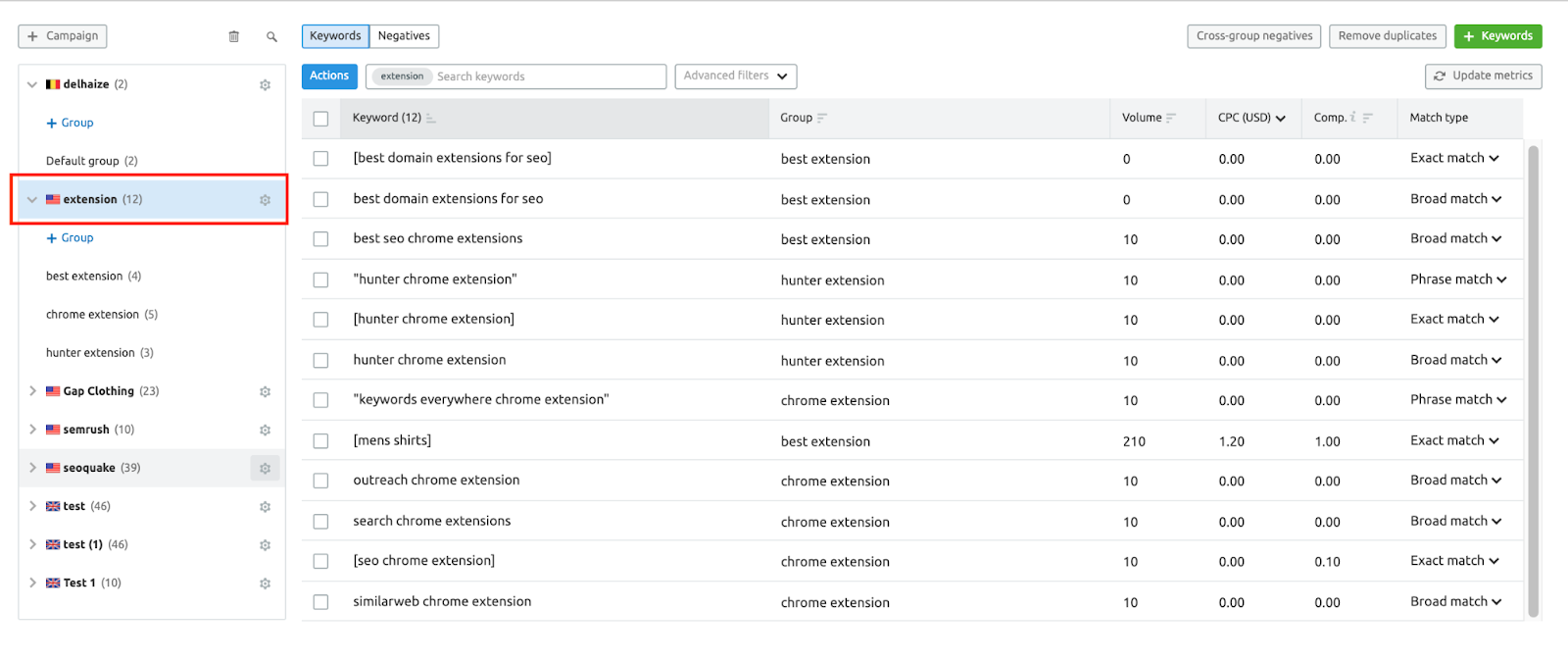
With the Keyword Magic tool, you can discover even more keywords to include in your SEM campaign.
Start by entering your seed keyword into the tool input:

The tool returns a list of relevant keywords and their metrics. Keep an eye on each keyword’s search volume and competitive density.

Keyword volume indicates the volume of searches for particular words per month. In the example above, the keyword “SEO agency” earned a total of 6,600 searches in the last month alone.
We can tell from the volume that this keyword is pretty popular, which might mean it’s also competitive. We can check the Competitive Density score to see how competitive this keyword might be for an SEM campaign.
Select the + symbol to add potential keywords to your Keyword Manager.
Problem: Competitors Beat Your Bids
Solution: Conduct competitor research
Your SEM campaign’s up and running, your budget’s in place, but you still don’t see any of your ads on the SERP pages you target. If this happens to you, you’re likely getting beat out for your bids by your competitors.
Tracking your competitors’ strategies can help you better target your keywords, or find new keyword opportunities they may have missed. Competitor research is a great way to stay on top of any market standards or changes that can affect your SEM campaigns.
Use the Advertising Research tool to analyze your competitors' keywords, CPC (cost-per-click), competitive density, and other competitive metrics.
To use the tool, start by entering your competitor’s domain into the search input:

The tool returns an Overview report, which you’ll use to track their paid search trends, projected traffic and costs, and target keywords:
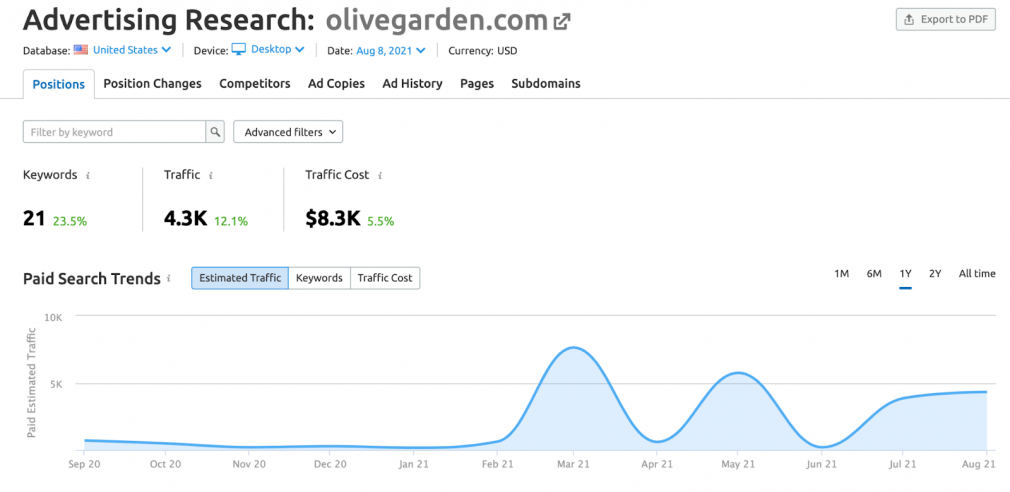
Perform a search for each of your top competitors for a comprehensive overview of which keywords your competitors are already targeting, how much they’re spending per click, and what an average ad in your market looks like. Toggle the Ad Copies tab to see your competitors’ text ads:
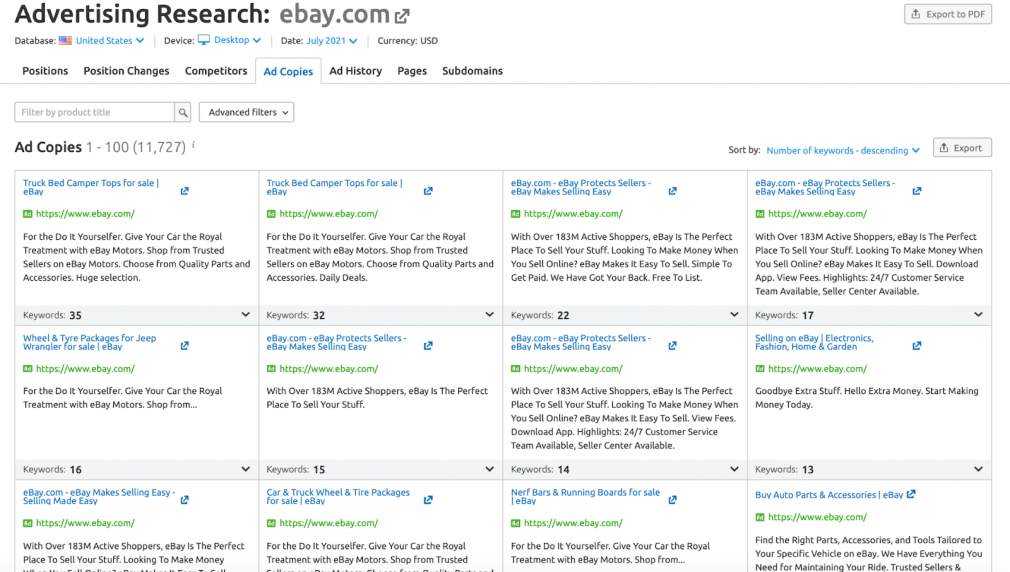
You can even track spot any position wins or losses your competitors earn over time with their SERP ads. Click the Position Changes tab and toggle the Lost option in the toolbar:

The Keyword Gap tool compares your keyword wins and losses to your competitors’ in an easy-to-follow chart format. Enter up to five domains (including your own) to see how your organic, paid or PLA keywords stack up:
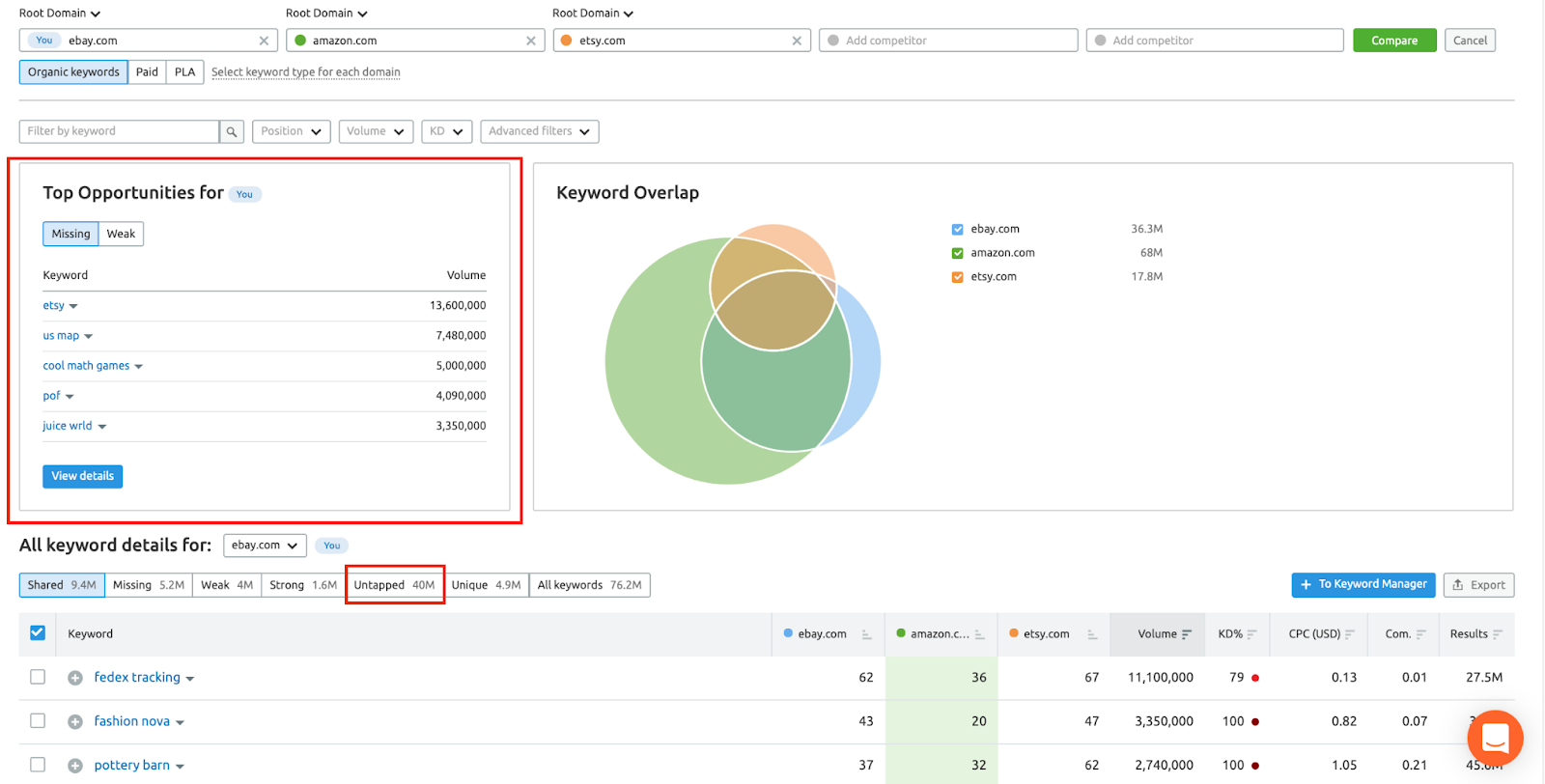
Toggle through the Missing or Weak keywords in the Top Opportunities widget to quickly spot any keywords missing from your strategy that your competitors are targeting. You can also select the “Untapped” view in the results below to view any keywords you can target before other competitors do.
Problem: Poor Performance Tracking
Solution: Position Tracking
Tracking your keywords positions is important if you want to measure the success of your SEM strategy. Keyword tracking can also help you determine if your competitors are ranking for your target keywords.
Position tracking can indicate if you need to refocus your efforts, improve your content, or address other elements of your strategy. If a competitor starts targeting or ranking for the same keywords as you, position tracking can alert you.
The Position Tracking tool helps automate much of the position tracking process, so you can focus on creating data-driven decisions. The tool updates daily, so you can track:
Multiple geographic locations in a single project Multiple devices (desktop or mobile)You can also see which pages of yours get the most traffic, and which pages need extra attention. You’ll need to create a project to use the Position Tracking tool.
Grab updates on your share of voice, top keywords, estimated traffic, and more at a glance with the Overview report:
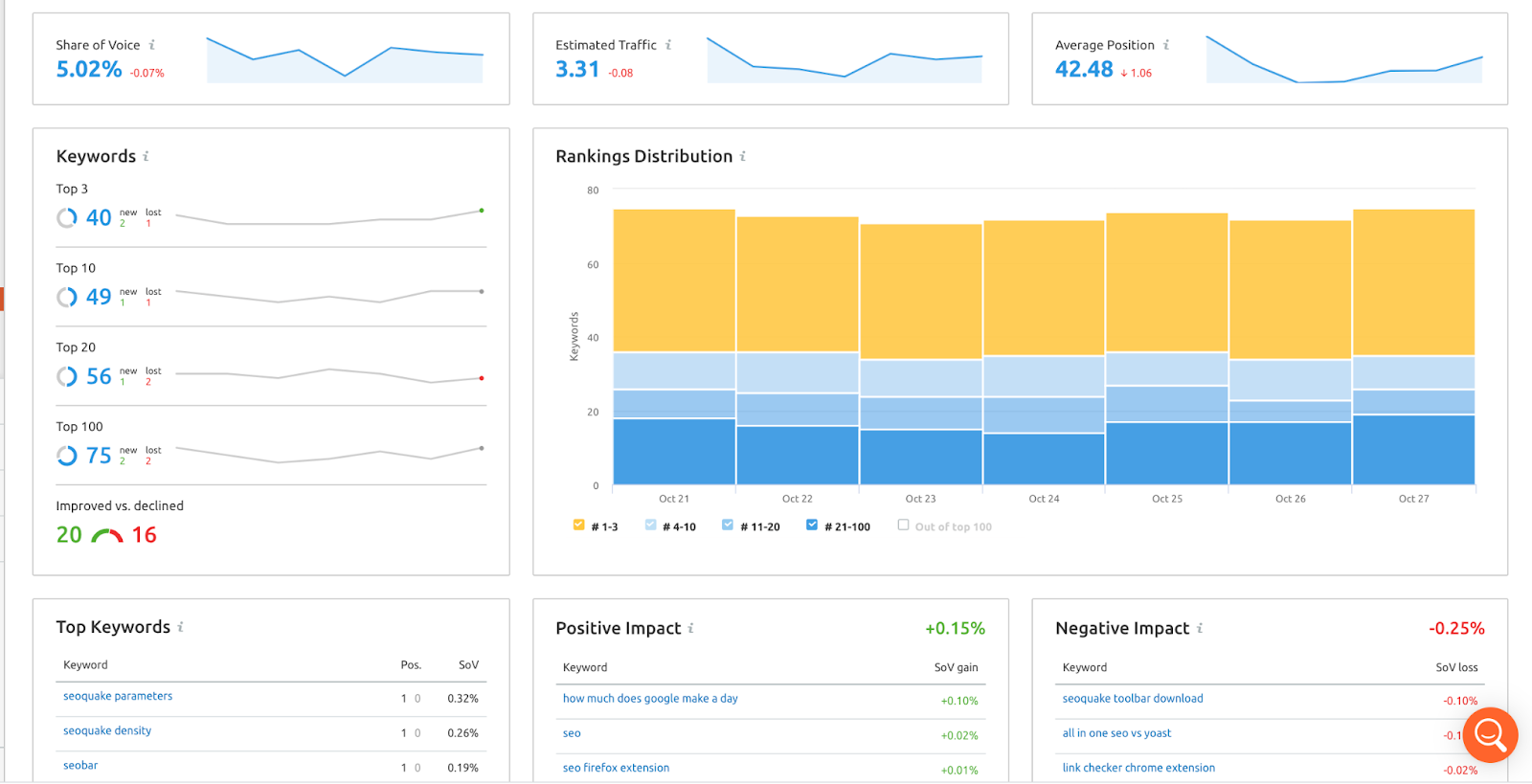
Final Thoughts
SEM campaigns work. If you have the budget to invest, they can reap great rewards. Research keywords, check out their paid ad campaigns, and create your own SEM and SEO campaigns, all within one tool.
Innovative SEO services
SEO is a patience game; no secret there. We`ll work with you to develop a Search strategy focused on producing increased traffic rankings in as early as 3-months.
A proven Allinclusive. SEO services for measuring, executing, and optimizing for Search Engine success. We say what we do and do what we say.
Our company as Semrush Agency Partner has designed a search engine optimization service that is both ethical and result-driven. We use the latest tools, strategies, and trends to help you move up in the search engines for the right keywords to get noticed by the right audience.
Today, you can schedule a Discovery call with us about your company needs.
Source:





